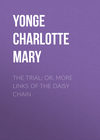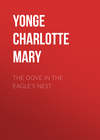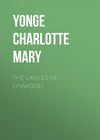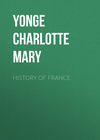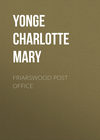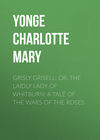Buch lesen: «Life of John Coleridge Patteson : Missionary Bishop of the Melanesian Islands», Seite 8
It would be impossible for me to say all he was to her. Not long before her death, when he had just left the room, she said, 'I have not felt any pain or weakness whilst Mr. Patteson has been here.' I was not always present during his visits to her, and I think their closer communings were only known to Him above, but their effects were discernible in that deep confidence in him on her part, and that lasting impression on him, for you will remember, in his letter last April, he goes back in memory to that time, and calls it—'a solemn scene in my early ministry.' Solemn, indeed, it was to us all that last night of her life upon earth. He was with her from about the middle of the day on Monday until about four o'clock on Tuesday morning; when, after commending her soul to God, he closed her eyes with his own hands, and taking out his watch, told us the hour and moment of her departure. He then went home and apprised Miss Wilkins of her death in these words: 'My soul fleeth unto the LORD before the morning watch, I say before the morning watch,' and at the earliest dawn of day, the villagers were made aware that she had passed away by the tolling bell, and tolled by him. This was not the only death during his ministry among us; but it was the first occasion where he gave the Communion of the Sick, also when he read the Burial Service. Cases of rejoicing with those that rejoiced as well as of weeping with those that wept, the child and the aged seemed alike to appreciate his goodness. In him were combined those qualities which could inspire with deep reverence and entire confidence. Many, many are or will be the stars in the crown of his rejoicing, and some owe to him under God, their deeper work of grace in the heart and their quickening in the divine life.'
A remarkable testimony is this to the impression remaining after the lapse of sixteen years from a ministry extending over no more than seventeen months. 'Our Mr. Patteson' the people called him to the last.
Yet, in the face of all this grief, the parting till death, the work broken off, the life cut short midway, the profusion of needs at home for able ministers, is it to be regretted that Coleridge Patteson devoted himself to the more remote fields abroad? I think we shall find that his judgment was right. Alfington might love him dearly, but the numbers were too small to afford full scope for his powers, and he would have experienced the trials of cramped and unemployed energies had he remained there beyond his apprenticeship. Nor were his gifts, so far as can be judged, exactly those most requisite for work in large towns. He could deal with individuals better than with masses, and his metaphysical mind, coupled with the curious difficulty he had in writing to an unrealised public, either in sermons or reports, might have rendered him less effective than men of less ability. He avoided, moreover, the temptations, pain, and sting of the intellectual warfare within the bosom of the Church, and served her cause more effectually on her borders than he could in her home turmoils. His great and peculiar gifts of languages, seconded by his capacity for navigation, enabled him to be the builder up of the Melanesian Church in so remarkable a manner that one can hardly suppose but that he was marked out for it, and these endowments would have found no scope in an ordinary career. Above all, no man can safely refuse the call to obey the higher leadings of grace. If he deny them, he will probably fall below that which he was before, and lose 'even that which he seemeth to have.'
A few days later, he wrote to his cousin Arthur Coleridge an expression of his feelings regarding the step he had taken in the midst of the pain it was costing to others:—
'Feniton: November 11, 9 A.M.
'My dear Arthur,—Your letter was very acceptable because I am, I confess, in that state of mind occasionally when the assurance of my being right, coming from another, tends to strengthen my own conviction.
'I do not really doubt as I believe; and yet, knowing my want of consideration for others, and many other thoughts which naturally prevent my exercising a clear sound judgment on a matter affecting myself, I sometimes (when I have had a conversation, it throws me back upon analysing my own conduct) feel inclined to go over the whole process again, and that is somewhat trying.
'On the other hand, I am almost strangely free from excitement. I live on exactly as I did before: and even when alone with Father, talk just as I used to talk, have nothing more to tell him, not knowing how to make a better use of these last quiet evenings.
'By-and-by I shall wish I had done otherwise, perhaps, but I do not know now, that I have anything specially requiring our consideration: we talk about family matters, the movements in the theological and political world, &c., very little about ourselves.
'One of all others I delight to think of for the music's sake, and far more for the glorious thought that it conveys. "Then shall the righteous," not indeed that I dare apply it to myself (as you know), but it helps one on, teaches what we may be, what our two dear parents are, and somehow the intervening, space becomes smaller as the eye is fixed steadily on the glory beyond.
'God bless you, my dear fellow.
'Ever your affectionate
'J. C. P.'
The Mission party intended to sail immediately after Christmas in the 'Southern Cross,' the schooner which was being built at Blackwall for voyages among the Melanesian isles. In expectation of this, Patteson went up to London in the beginning of December, when the admirable crayon likeness was taken by Mr. Richmond, an engraving from which is here given. He then took his last leave of his uncle, and of the cousins who had been so dear to him ever since the old days of daily meeting in childhood; and Miss Neill, then a permanent invalid, notes down: 'On December 13, I had the happiness of receiving the Holy Communion from dear Coley Patteson, and the following morning I parted from him, as I fear, for ever. God bless and prosper him, and guard him in all the dangers he will encounter!' He wrote thus soon after his return:—
'Feniton: December 22, 1854.
'My dear Miss Neill,—I began a note to you a day or two ago, but I could not go on with it, for I have had so very much to do in church and out of it, parochializing, writing sermons, &c. It makes some little difference in point of time whether I am living here or at Alfington, and so the walking about from one house to another is not so convenient for writing letters as for thinking over sermons.
'I need not tell you what a real happiness and comfort it is to me to have been with you again and to have talked so long with you, and most of all to have received the Communion with you. It is a blessed thought that no interval of space or time can interrupt that Communion of the Spirit, and that we are one in Him, though working in different corners of the Lord's field.
'I want to look you out a little book or two; and Fanny has told you that if ever my picture is photographed, I have particularly desired them to send you a copy with my love. Your cross I have now round my neck, and I shall always wear it; it will hang there with a locket containing locks of hair of my dear Father and Mother, the girls, and Jem.
'You will be glad to hear that they all seem cheerful and hearty. Fan is not well, but I do not see that she is depressed or unhappy. In fact, the terrible events of the war prove a lesson to all, and they feel, I suppose, that it might be far worse, and that so long as I am doing my duty, there is no cause for sorrow.
'Still there will be seasons of loneliness and sadness, and it seems to me as if it always was so in the case of all the people of whom we read in the Bible. Our Lord distinctly taught His disciples to expect it to be so, and even experienced this sorrow of heart Himself, filling up the full measure of His cup of bitterness. So I don't learn that I ought exactly to wish it to be otherwise, so much is said in the Bible about being made partaker of His, sufferings, only I pray that it may please God to bear me up in the midst of it. I must repeat that your example is constantly before me, as a witness to the power that God gives of enduring pain and sickness. It is indeed, and great comfort it gives me. He is not indeed keeping you still in the world without giving you a work to do, and enabling you from your bed of sickness to influence strongly a circle of friends.
'God bless you for all your kindness to me, and watchfulness over me as a child, for your daily thought of me and prayers for me, and may He grant that I may wear your precious gift not only on but in my heart.
'Always your very affectionate
'J. C. PATTESON
'P.S.—I do not expect to sail for three weeks; this morning I had a line about the ship, and they say that she cannot be ready for a fortnight.'
On Christmas-day, he was presented with a Bible subscribed for by the whole Alfington population. Here is a sentence from his letter of acknowledgment:—
'If these poor needy souls can, from love to a fellow creature whom they have known but a few months, deny themselves their very crumb of bread to show their affection, what should be our conduct to Him from whom we have received all things, and to whom we owe our life, strength, and all that we possess?'
The farewell service was said by one of these poor old people to be like a great funeral. Sexagesima Sunday was Sir John's sixty-sixth birthday, and it was spent in expectation that it would be the last of the whole party at home, for on the Monday Sir John was obliged to go to London for a meeting of the Judicial Committee. The two notes his son wrote during his absence are, perhaps to prove good spirits, full of the delights of skating, which were afforded by the exceptionally severe frost of February 1855, which came opportunely to regale with this favourite pastime one who would never tread on solid ice again. He wrote with zest of the large merry party of cousins skating together, of the dismay of the old housekeeper when he skimmed her in a chair over the ice, sighing out, in her terror, 'My dear man, don't ye go so fast,' with all manner of endearing expressions—of the little boys to whom he threw nuts to be scrambled for, and of his own plunge through the thinner ice, when, regardless of drenched garments, he went on with the sport to the last, and came home with clothes frozen as stiff as a board.
He was not gone when his father and brother came home on the twenty-sixth, prepared to go with him to Southampton.
The note to his cousin Arthur written at this time thus ends: 'We worked together once at Dresden. Whatever we have acquired in the way of accomplishments, languages, love of art and music, everything brings us into contact with somebody, and gives us the power of influencing them for good, and all to the glory of God.'
Many were touched when, on the first Sunday in Lent, as Sir John Patteson was wont to assist in Church by reading the Lessons, it fell to him to pronounce the blessing of God upon the patriarch for his willing surrender of his son.
After all, the 'Southern Cross' was detected in leaking again, and as she was so small that the Mission party would have been most inconveniently crowded for so long a voyage, the Bishop was at length persuaded to relinquish his intention of sailing in her, and passages were taken for himself, Mrs. Selwyn, Mr. Patteson, and another clergyman, in the 'Duke of Portland,' which did not sail till the end of March, when Patteson was to meet her at Gravesend.
Thus he did not depart till the 25th. 'I leave home this morning I may say, for it has struck midnight,' he wrote to Miss Neill. 'I bear with me to the world's end your cross, and the memory of one who is bearing with great and long-tried patience the cross that God has laid upon her.'
He chose to walk to the coach that would take him to join the railway at Cullompton. The last kisses were exchanged at the door, and the sisters watched him out of sight, then saw that their father was not standing with them. They consulted for a moment, and then one of them silently looked into his sitting room, and saw him with his little Bible, and their hearts were comforted concerning him. After that family prayers were never read without a clause for Missionaries, 'especially the absent member of this family.'
He went up to his brother's chambers in London, whence a note was sent home the next day to his father:—
'I write one line to-night to tell you that I am, thank God, calm and even cheerful. I stayed a few minutes in the churchyard after I left you, picked a few primrose buds from dear mamma's grave, and then walked on.
'At intervals I felt a return of strong violent emotion, but I soon became calm; I read most of the way up, and felt surprised that I could master my own feelings so much.
'How much I owe to the cheerful calm composure which you all showed this morning! I know it must have cost you all a great effort. It spared me a great one.'
On the 27th the brothers went on board the 'Duke of Portland,' and surveyed the cabins, looking in at the wild scene of confusion sure to be presented by an emigrant ship on the last day in harbour. A long letter, with a minute description of the ship and the arrangements ends with: 'I have every blessing and comfort. Not one is wanting. I am not in any excitement, I think, certainly I do not believe myself to be in such a state as to involve a reaction of feeling. Of course if I am seedy at sea for a few days I shall feel low-spirited also most likely, and miss you all more in consequence. But that does not go below the surface. Beneath is calm tranquil peace of mind.'
On the 28th the two brothers joined the large number of friends who went down with the Mission party, among them Mr. Edward Coleridge.
Parting notes were written from on board to all the most beloved; to little Paulina, of bright hopes, to Miss Neill of her cross; to Arthur the German greeting, 'Lebe wohl, doch nicht auf Ewigkeit,'—to Mr. Justice Coleridge:—
'March 28, 1855.
'My dear Uncle,—One line more to thank you for all your love and to pray for the blessing of God upon you and yours now and for ever.
'We sail to-day. Such letters from home, full of calm, patient, cheerful resignation to his will. Wonderfully has God supported us through this trial. My kind love to Arthur. Always, my dear Uncle, Your affectionate, grateful Nephew,
'JOHN COLERIDGE PATTESON.'
Perhaps the frame of mind in which Coley left England can best be gathered from the following extract from a letter to his father from his uncle Edward:—
'While on board I had a good deal of quiet talk with him, and was fully confirmed by his manner and words, of that which I did not doubt before, that the surrender of self, which he has made, has been put into his heart by God's Holy Spirit, and that all his impulses for good are based on the firm foundation of trust in God, and a due appreciation of his mortal, as well as professional condition. I never saw a hand set on the plough stead with more firmness, yet entire modesty, or with an eye and heart less turned backwards on the world behind. I know you do not in any way repine at what you have allowed him to do; and I feel sure that ere long you will see cause to bless God not only for having given you such a son, but also for having put it into his heart so to devote himself to that particular work in the Great Vineyard.'
About 5 P.M. the 'Duke of Portland' swung round with the tide, strangers were ordered on shore, Coleridge and James Patteson said their last farewells, and while the younger brother went home by the night-train to carry the final greetings to his father and sisters, the ship weighed anchor and the voyage was begun.
CHAPTER VI. THE VOYAGE AND FIRST YEAR. 1855-1856
When the See of New Zealand was first formed, Archbishop Howley committed to the care of the first Bishop the multitudinous islands scattered in the South Pacific. The technical bounds of the diocese were not defined; but matters were to a certain degree simplified by Bishop Selwyn's resolution only to deal with totally heathen isles, and whatever superiority the authorised chief pastor might rightfully claim, not to confuse the minds of the heathen by the sight of variations among Christians, and thus never to preach in any place already occupied by Missions, a resolution from which he only once departed, in the case of a group apparently relinquished by its first teachers. This cut off all the properly called Polynesian isles, whose inhabitants are of the Malay type, and had been the objects of care to the London Mission, ever since the time of John Williams; also the Fiji Islands; and a few which had been taken in hand by a Scottish Presbyterian Mission; but the groups which seem to form the third fringe round the north-eastern curve of Australia, the New Hebrides, Banks Islands, and Solomon Isles, were almost entirely open ground, with their population called Melanesian or Black Islanders, from their having much of the Negro in their composition and complexion. These were regarded as less quick but more steady than the Polynesian race, with somewhat the same difference of character as there is between the Teuton and the Kelt. The reputation of cannibalism hung about many of the islands, and there was no doubt of boats' crews having been lost among them, but in most cases there had been outrage to provoke reprisals.
These islands had as yet been little visited, except by Captain Cook, their first discoverer, and isolated Spanish exploring expeditions; but of late whalers and sandal wood traders, both English and American, had been finding their way among them, and too often acting as irresponsible adventurous men of a low class are apt to do towards those whom they regard as an inferior race.
Mission work had hardly reached this region. It was in attempting it that John Williams had met his death at Erromango, one of the New Hebrides; but one of his best institutions had been a school in one of the Samoan or Navigators' Islands, in which were educated young men of the native races to be sent to the isles to prepare the way for white men. Very nobly had these Samoan pupils carried out his intentions, braving dislike, disease and death in the islands to which they were appointed, and having the more to endure because they came without the prestige of a white man. Moreover, the language was no easier to them than to him, as their native speech is entirely different from the Melanesian; which is besides broken into such an extraordinary number of different dialects, varying from one village to another in an island not twenty miles long, that a missionary declared that the people must have come straight from the Tower of Babel, and gone on dividing their speech ever since. Just at the time of the formation of the See of New Zealand, the excitement caused at home by Williams's death had subsided, and the London Mission's funds were at so low an ebb that, so far from extending their work, they had been obliged to let some of it fall into abeyance.
All this came to the knowledge of the Bishop of New Zealand while he was occupied with the cares of his first seven years in his more immediate diocese, and in 1848, he made a voyage of inspection in H.M.S. 'Dido.' He then perceived that to attempt the conversion of this host of isles of tropical climate through a resident English clergyman in each, would be impossible, besides which he knew that no Church takes root without native clergy, and he therefore intended bringing boys to New Zealand, and there educating them to become teachers to their countrymen. He had lately established, near Auckland, for the sons of the colonists, St. John's College, which in 1850 was placed under the Reverend Charles John Abraham, the former Eton master, who had joined the Bishop to act as Archdeacon and assist in the scheme of education; and here it was planned that the young Melanesians should be trained.
The Bishop possessed a little schooner of twenty-two tons, the 'Undine,' in which he was accustomed to make his expeditions along the coast; and in August 1849, he set forth in her, with a crew of four, without a weapon of any sort, to 'launch out into the deep, and let down his nets for a draught.' Captain Erskine of H.M.S. 'Havannah' readily undertook to afford him any assistance practicable, and they were to cruise in company, the 'Undine' serving as a pilot boat or tender on coasts where the only guide was 'a few rough sketches collected from small trading vessels.'
They met near Tanna, but not before the Bishop had been in Dillon's Bay, on the island of Erromango, the scene of Williams's murder, and had allowed some of the natives to come on board his vessel as a first step towards friendly intercourse. The plan agreed on by the Bishop and the Captain was to go as far north as Vate, and return by way of the Loyalty Isles, which fringe the east coast of New Caledonia, to touch at that large island, and then visit the Island of Pines, at its extreme south point, and there enquire into a massacre said to have taken place. This was effected, and in each place the natives showed themselves friendly. From New Caledonia the Bishop brought away a pupil named Dallup, and at two of the Loyalty Islands, Nengone or Mare, and Lifu, where Samoan teachers had excited a great desire for farther instruction, boys eagerly begged to go with him, and two were taken from each, in especial Siapo, a young Nengone chief eighteen or nineteen years old, of very pleasing aspect, and with those dignified princely manners which rank is almost sure to give. The first thing done with such lads when they came on board was to make clothes for them, and when they saw the needle employed in their service, they were almost sure to beg to be taught the art, and most of them soon became wonderfully dexterous in it.
On the Island of Pines, so called from the tower-like masses of the Norfolk pine on the shores, was at that time the French Bishop of New Caledonia, the Oul, as the natives called him and his countrymen, for whom they had little love. After an interview between the two bishops, the 'Undine' returned to New Zealand, where the native boys were brought to St. John's College. The system of education there combined agricultural labour and printing with study, and the authorities and the boys shared according to their strength in both, for there was nothing more prominent in the Bishop's plan than that the coloured man was not to be treated as a mere hewer of wood and drawer of water, but, as a Maori once expressed the idea: 'Gentleman—gentleman thought nothing that ought to be done at all too mean for him; pig-gentleman never worked.' The whole community, including the ladies and their guests, dined together in hall.
The five boys behaved well, Siapo being a leader in all that was good, and made advances in Christian knowledge; but it was one of the Bishop's principles that none of them should be baptized till he had proved whether his faith were strong enough to resist the trial of a return to his native home and heathen friends. The climate of New Zealand is far too chilly for these inhabitants of tropical regions, and it was absolutely necessary to return them to their homes during the winter quarter from June to August. The scheme therefore was to touch at their islands, drop them there, proceed then further on the voyage, and then, returning the same way, resume them, if they were willing to come under instruction for baptism and return to the college. In the lack of a common language, Bishop Selwyn hoped to make them all learn English, and only communicate with one another in that.
The 'Undine,' not being large enough for the purpose, was exchanged for the 'Border Maid;' and in the course of the next three years an annual voyage was made, and boys to the number of from twelve to fourteen brought home. Siapo of Nengone was by far the most promising scholar. He was a strong influence, when at home, on behalf of the Samoan teachers, and assisted in the building of a round chapel, smoothly floored, and plastered with coral lime. In 1852 he was baptized, together with three of his friends, in this chapel, in his own island, by the Bishop, in the presence of a thousand persons, and received the name of George. When the 'Border Maid' returned, though he was convalescent from a severe illness, he not only begged that he might come back, but that the young girl to whom he was betrothed might be taken to New Zealand to be trained in Christian ways. Ready consent was given, and the little Wabisane, and her companion Wasitutru (Little Chattering Bird), were brought on board, and arrayed in petticoats fashioned by the Bishop's own hands, from his own counterpane, with white skirts above, embellished with a bow of scarlet ribbon, the only piece of finery to be found in the 'Border Maid.' The Rev. William Nihill had spent the period of this trip at Nengone, and had become deeply interested in the people. The island was then thought likely to become a centre whence to work on adjacent places; but to the grief and disappointment of all, George Siapo did not live through the summer at St. John's. He had never recovered his illness at home, and rapidly declined; but his faith burnt brighter as his frame became weaker, and his heart was set on the conversion of his native country. He warmly begged Mr. Nihill to return thither, and recommended him to the protection of his friends, and he wished his own brother to become scholar at St. John's. His whole demeanour was that of a devoted Christian, and when he died, in the January of the year 1853, he might be regarded as the firstfruits of the Melanesian Church. Since Mr. Nihill was about to return to Nengone, and there was a certain leaven of Christianity in the place, the girls were not subjected to the probation of a return before baptism, but were christened Caroline and Sarah, after Mrs. Abraham and Mrs. Selwyn.
Another very satisfactory pupil was little Umao. An English sailor in a dreadful state of disease had been left behind by a whaler at Erromango, where the little Umao, a mere boy, had attached himself to him, and waited on him with the utmost care and patience, though meeting with no return but blows and rough words. The man moved to Tanna, where there are mineral springs highly esteemed by the natives, and when the 'Border Maid' touched there, in 1851, he was found in a terrible condition, but with the little fellow faithfully attending him. The Englishman was carried to Sydney, and left in the hospital there; but Umao begged not to be sent home, for he said his parents cruelly ill-used him and his brothers, and set them to watch the fire all night to keep off evil spirits; so, when New Zealand became too cold for him, he was sent to winter at the London Society's station in Anaiteum. His sweet friendly nature expanded under Christian training, but his health failed, and in the course of the voyage of 1853 he became so ill that his baptism was hastened, and he shortly after died in the Bishop's arms.
Two more boys, cousins, from Lifu, also died. There never was any suspicion or displeasure shown among the relatives of these youths. Their own habits were frightfully unhealthy; they were not a long-lived people, and there was often great mortality among them, and though they were grieved at the loss of their sons, they never seemed distrustful or ungrateful. But it was evident that, even in the summer months, the climate of New Zealand was trying to these tropical constitutions, and as it was just then determined that Norfolk Island should no longer be the penal abode of the doubly convicted felons of Botany Bay, but should instead become the home of the descendants of the mutineers of the 'Bounty' who had outgrown Pitcairn's Island, the Bishop cast his eyes upon it as the place most likely to agree alike with English and Melanesian constitutions, and therefore eminently fitted for the place of instruction.
The expenses of the voyages in the 'Border Maid' had been met partly by the Eton Association, and partly by another association at Sydney, where a warm interest in these attempts had been excited and maintained by the yearly visits of Bishop Selwyn, who usually visited Australia while the lads were wintering at their homes. But the 'Border Maid' was superannuated, nor had she ever been perfectly fitted for the purpose; and when, in 1853, the Bishop was obliged to come to England to take measures for dividing his diocese, he also hoped to obtain permission to establish a Melanesian school on Norfolk Island, and to obtain the means of building a schooner yacht, small enough to be navigated in the narrow, shallow creeks separating the clustered islets, and yet capacious enough for the numerous passengers. In the meantime Mr. Nihill went to Nengone with his wife and child. His lungs were much affected, but he hoped that the climate would prolong his power of working among the Christian community, who heartily loved and trusted him.
Other fellow-labourers the Bishop hoped to obtain at home, though it was his principle never to solicit men to come with him, only to take those who offered themselves; but all the particulars of the above narration had been known to Coley Patteson through the Bishop's correspondence with Mr. Edward Coleridge, as well as by the yearly report put forth by the Eton Association, and this no doubt served to keep up in his heart the flame that had burnt unseen for so many years, and to determine its direction, though he put himself unreservedly at the Bishop's disposal, to work wherever he might be sent.
The means for the mission ship 'Southern Cross' were raised. She was built at Blackwall by Messrs. Wigram, and, after all the delays, sailed on the very same day as the 'Duke of Portland.'











